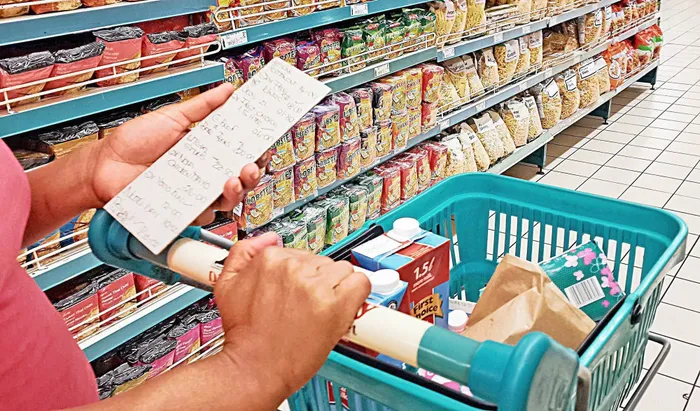South Africans demand healthier, smarter, and more sustainable food choices, PwC report reveals

PwC’s Voice of the Consumer 2025 report highlights how South African consumers are driving change in the food industry, demanding affordable, health-conscious, and tech-enabled food options amid rising costs and shifting global trends.
Image: File photo
The food industry is undergoing a profound transformation, shaped not just by economic pressures and climate realities but by consumers who are reimagining what they eat, how it is produced, and why it matters.
According to PwC’s Voice of the Consumer 2025 report, South Africans are playing a leading role in pushing for healthier, tech-driven, and sustainable food choices.
The survey, which engaged more than 20,000 consumers globally, including over 1000 South Africans, revealed that people are no longer passive participants in the food system.
They are driving the change.
Nearly three-quarters of local respondents said they are concerned about ultra-processed foods and pesticide use, while 70% plan to increase their consumption of fresh produce in the coming months.
“Consumers are asserting their values-led appetites,” the report noted, highlighting a shift toward food that is both nutritious and responsibly produced.
At the same time, South Africans expect companies to share the responsibility for healthier living.
More than half of those surveyed believe food producers and manufacturers should lead efforts to promote healthy and nutritious eating.
“Health benefits are now a key driver of brand loyalty,” PwC found, with 42% of local respondents citing wellness as a top reason for switching brands, higher than the global average of 33%.
This growing awareness has also placed pressure on food companies to innovate.
PwC identifies three focus areas shaping the next phase of growth in the industry: health and wellness advocacy, personalised eating experiences, and stronger commitments to climate goals.
Technology and innovation reshape consumer behaviour
South Africans are increasingly blending technology with wellness.
Over three-quarters of respondents said they use healthcare apps or wearable devices to monitor health and lifestyle habits.
A smaller but influential group of “health-tech enthusiasts” reported making significant lifestyle changes because of these tools.
The embrace of technology extends to food shopping.
Almost 40% of consumers have explored non-traditional retail spaces such as on-demand grocery and meal-kit services.
Although supermarkets remain the primary shopping destination, subscription boxes, delivery platforms, and farmers’ markets are gaining traction.
Generative AI is also entering the kitchen.
Three-quarters of respondents said they are comfortable using AI for grocery planning or meal suggestions, a sign that the future of food could be personalised, data-driven, and seamlessly integrated into daily life.
Price remains the biggest obstacle
Despite their aspirations, many South Africans remain constrained by cost. Rising food prices are forcing households to find creative ways to stretch budgets. Two-thirds of respondents said they now buy in bulk, while over half shop at multiple stores to find the best deals.
When forced to make trade-offs, price remains the deciding factor.
PwC’s analysis shows that affordability often outweighs nutritional value, sustainability, and even local sourcing. Yet, 54% of respondents said they would switch brands if they could find better value for money, underscoring a strong opportunity for companies that balance quality with affordability.
Climate consciousness meets practicality
The study also found that while most consumers express concern about climate change, this does not always translate into their buying behaviour.
Eighty-five percent of South Africans said they are worried about the effects of climate change, but fewer than half are willing to pay more for sustainably produced food. However, the majority are actively trying to reduce waste, 72% said they only buy what they need, and 62% are considering frozen or longer-lasting options.
The path forward for food businesses
PwC’s global leaders argue that the future of the food industry lies in collaboration across sectors such as healthcare, technology, and logistics.
“By using insight to put customers at the heart of operations, brands and retailers can innovate together to open new markets that better serve evolving needs,” said Ashwin Prasad, Chief Commercial Officer at Tesco, in the report.
For South Africa, this evolution represents both a challenge and an opportunity.
As the economy recovers and consumers continue to prioritise health, affordability, and convenience, food companies must adapt quickly.
Those that align purpose with innovation are best placed to succeed in this fast-changing landscape.
In the words of PwC, the future of food is aspirational, health-focused, and tech-driven and South Africans are already shaping the recipe.
BUSINESS REPORT